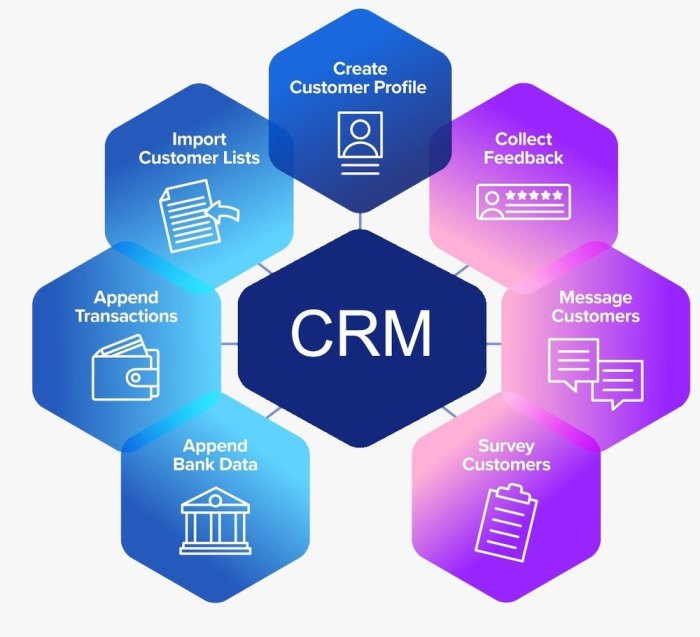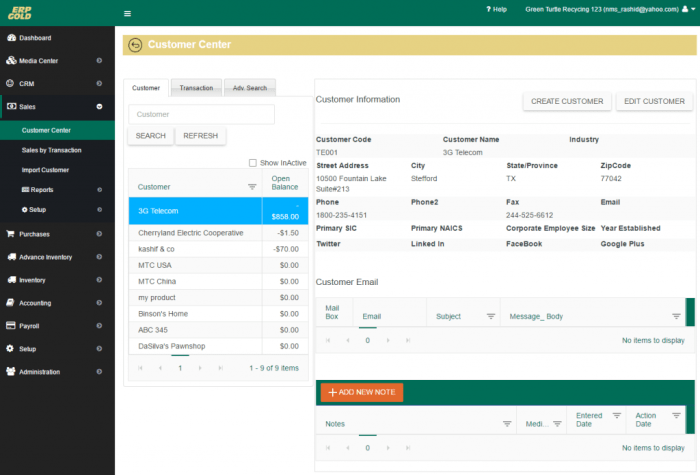Crm software for customer service – In today’s competitive landscape, providing exceptional customer service is paramount to success. Customer Relationship Management (CRM) software has evolved from a simple contact database to a powerful tool that streamlines customer interactions, improves team efficiency, and ultimately boosts customer satisfaction and loyalty. This comprehensive guide delves into the world of CRM software specifically for customer service, exploring its features, benefits, and how to choose the right solution for your business.
Understanding the Role of CRM in Customer Service
CRM software acts as a central hub for all customer-related information. It consolidates data from various sources, providing a 360-degree view of each customer. This unified view empowers customer service agents to understand customer history, preferences, and past interactions, allowing for personalized and efficient support. Gone are the days of searching through multiple spreadsheets and emails; CRM systems centralize everything, leading to faster resolution times and happier customers.
Key Features of CRM for Customer Service
- Ticketing System: A robust ticketing system allows for efficient tracking and management of customer inquiries. Features like automated routing, prioritization, and status updates ensure no request falls through the cracks. Many systems offer self-service portals, allowing customers to find answers and submit tickets independently.
- Knowledge Base: A comprehensive knowledge base, often integrated within the CRM, empowers agents and customers alike. It contains articles, FAQs, and troubleshooting guides, reducing the need for repetitive responses and empowering customers to solve issues independently. This feature significantly reduces agent workload and improves response times.
- Live Chat & Messaging: Real-time communication tools, such as live chat and integrated messaging platforms, enable immediate interaction with customers. This allows for quick resolution of simple issues and provides a convenient communication channel for customers.
- Call Center Integration: Seamless integration with phone systems allows agents to access customer information directly within the call interface, improving call handling efficiency and providing a more personalized experience.
- Reporting & Analytics: CRM systems offer robust reporting and analytics capabilities. This allows businesses to track key metrics such as customer satisfaction (CSAT), Net Promoter Score (NPS), average resolution time, and agent performance. Data-driven insights inform strategic improvements and optimize customer service processes.
- Customer Segmentation: The ability to segment customers based on demographics, purchase history, or other criteria allows for targeted communication and personalized support. This ensures that customers receive relevant information and assistance, enhancing their overall experience.
- Automation & Workflow: Automating repetitive tasks, such as sending welcome emails or follow-up messages, frees up agent time for more complex issues. Workflow automation streamlines processes and ensures consistent service delivery.
Benefits of Implementing CRM for Customer Service
The benefits of using CRM software for customer service are numerous and far-reaching. These advantages translate directly to improved customer satisfaction, increased efficiency, and ultimately, enhanced profitability.
Improved Customer Satisfaction
- Faster Response Times: Centralized information and streamlined workflows lead to significantly faster response times to customer inquiries.
- Personalized Interactions: Access to complete customer history allows for personalized and tailored support, fostering stronger customer relationships.
- Proactive Support: CRM systems can identify potential issues and proactively reach out to customers, preventing problems before they escalate.
- Improved Communication: Multiple communication channels and a centralized communication history ensure seamless and consistent interactions.
Increased Efficiency and Productivity
- Automated Workflows: Automation reduces manual tasks, freeing up agents to focus on more complex issues and providing more personalized service.
- Reduced Resolution Time: Faster access to information and streamlined processes result in quicker resolution of customer issues.
- Improved Agent Performance: CRM systems provide agents with the tools and information they need to perform their jobs effectively.
- Better Resource Allocation: Data-driven insights allow for better allocation of resources, optimizing team efficiency.
Enhanced Business Growth, Crm software for customer service
- Increased Customer Loyalty: Exceptional customer service fosters loyalty, leading to repeat business and positive word-of-mouth referrals.
- Improved Customer Retention: Proactive support and personalized interactions reduce customer churn.
- Data-Driven Decision Making: CRM analytics provide valuable insights to inform strategic business decisions.
- Increased Revenue: Improved customer satisfaction and retention directly translate to increased revenue.
Choosing the Right CRM Software for Your Business
Selecting the right CRM software involves careful consideration of your business needs and budget. There are numerous options available, ranging from simple, affordable solutions to complex, enterprise-level systems. Key factors to consider include:
- Scalability: Choose a system that can grow with your business.
- Integration Capabilities: Ensure seamless integration with existing systems (e.g., email, phone, marketing automation).
- User-Friendliness: Select a system that is intuitive and easy for your team to use.
- Customization Options: Look for a system that can be customized to meet your specific needs.
- Pricing and Support: Consider the overall cost, including implementation, training, and ongoing support.
Popular CRM Software Options for Customer Service
Several leading CRM platforms offer robust customer service features. Some popular choices include Salesforce Service Cloud, Zendesk, HubSpot Service Hub, Freshdesk, and Zoho CRM. Each platform offers a unique set of features and pricing models, so it’s crucial to research and compare options before making a decision.

Source: imimg.com
Frequently Asked Questions (FAQ)
- Q: What is the cost of CRM software? A: The cost varies greatly depending on the features, number of users, and vendor. Some offer tiered pricing plans, while others require custom quotes.
- Q: How long does it take to implement CRM software? A: Implementation time depends on the complexity of the system and the size of your business. It can range from a few weeks to several months.
- Q: What training is required for CRM software? A: Most vendors provide training resources, including online tutorials, documentation, and sometimes in-person training sessions.
- Q: Can CRM software integrate with other business tools? A: Yes, many CRM systems offer robust integration capabilities with other business tools, such as email marketing platforms, accounting software, and help desk systems.
- Q: How can I measure the success of my CRM implementation? A: Track key metrics such as customer satisfaction (CSAT), Net Promoter Score (NPS), average resolution time, and agent productivity.
Conclusion
Implementing a CRM system for customer service is a strategic investment that can significantly improve customer satisfaction, boost efficiency, and drive business growth. By carefully considering your business needs and selecting the right software, you can unlock the full potential of your customer service team and build stronger, more profitable customer relationships. Choosing the right CRM is a journey, not a destination; continuous monitoring and optimization are key to maximizing its benefits.

Source: erp.gold
References
Call to Action
Ready to transform your customer service? Contact us today for a free consultation to discuss your specific needs and explore how the right CRM solution can benefit your business.
FAQ Section: Crm Software For Customer Service
What are the different types of CRM software?
CRM software comes in various forms, including cloud-based, on-premise, and hybrid solutions. Each offers different levels of flexibility, scalability, and cost.
How much does CRM software cost?
Pricing varies widely depending on the features, number of users, and vendor. Options range from affordable monthly subscriptions to significant upfront investments for enterprise-level solutions.
How long does it take to implement CRM software?
Implementation timelines depend on the complexity of the system and the size of the organization. It can range from a few weeks for smaller businesses to several months for larger enterprises.
What are the key features to look for in a CRM?
Essential features include contact management, sales force automation, customer support ticketing, reporting and analytics, and integration with other business tools.
